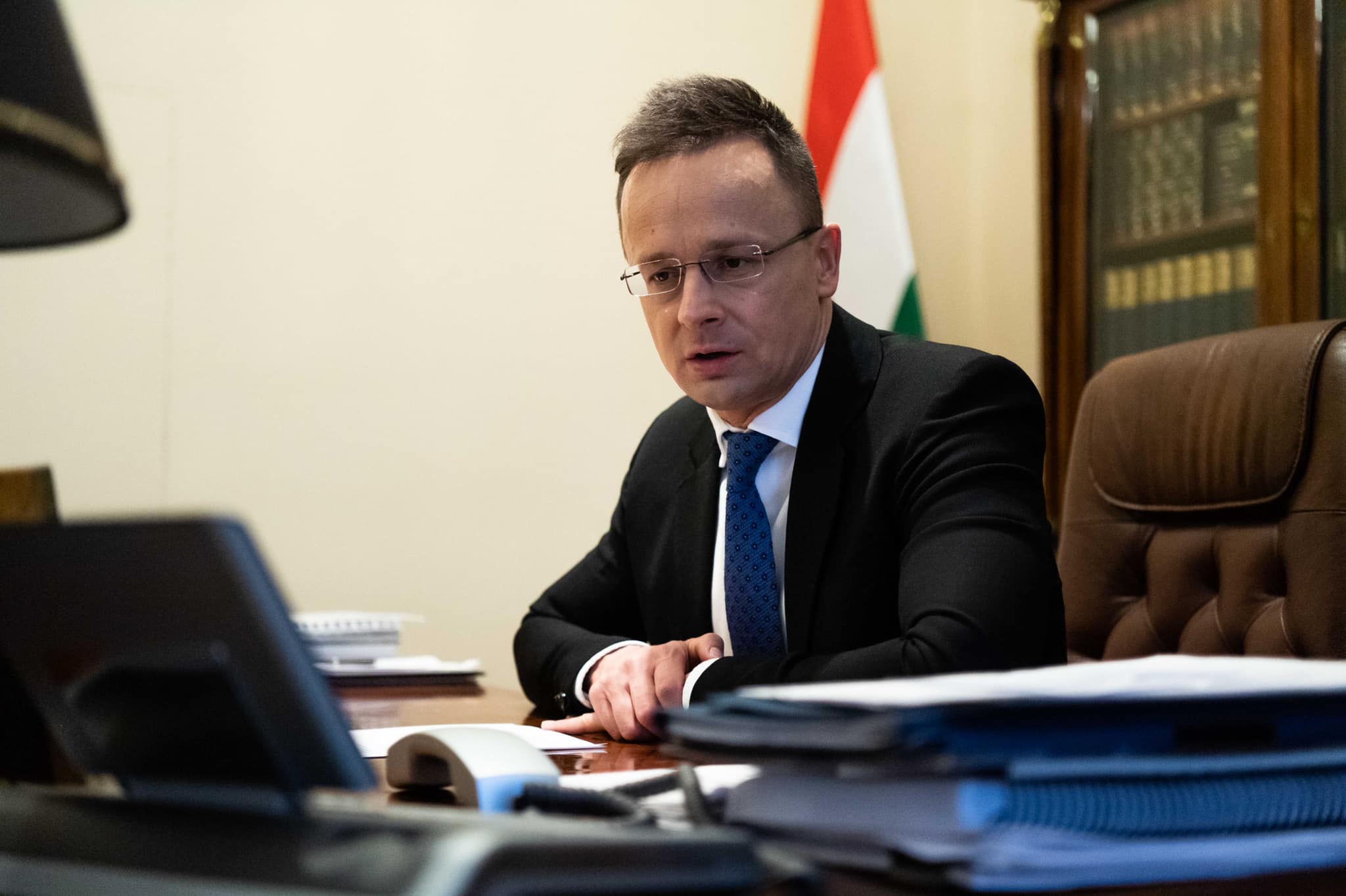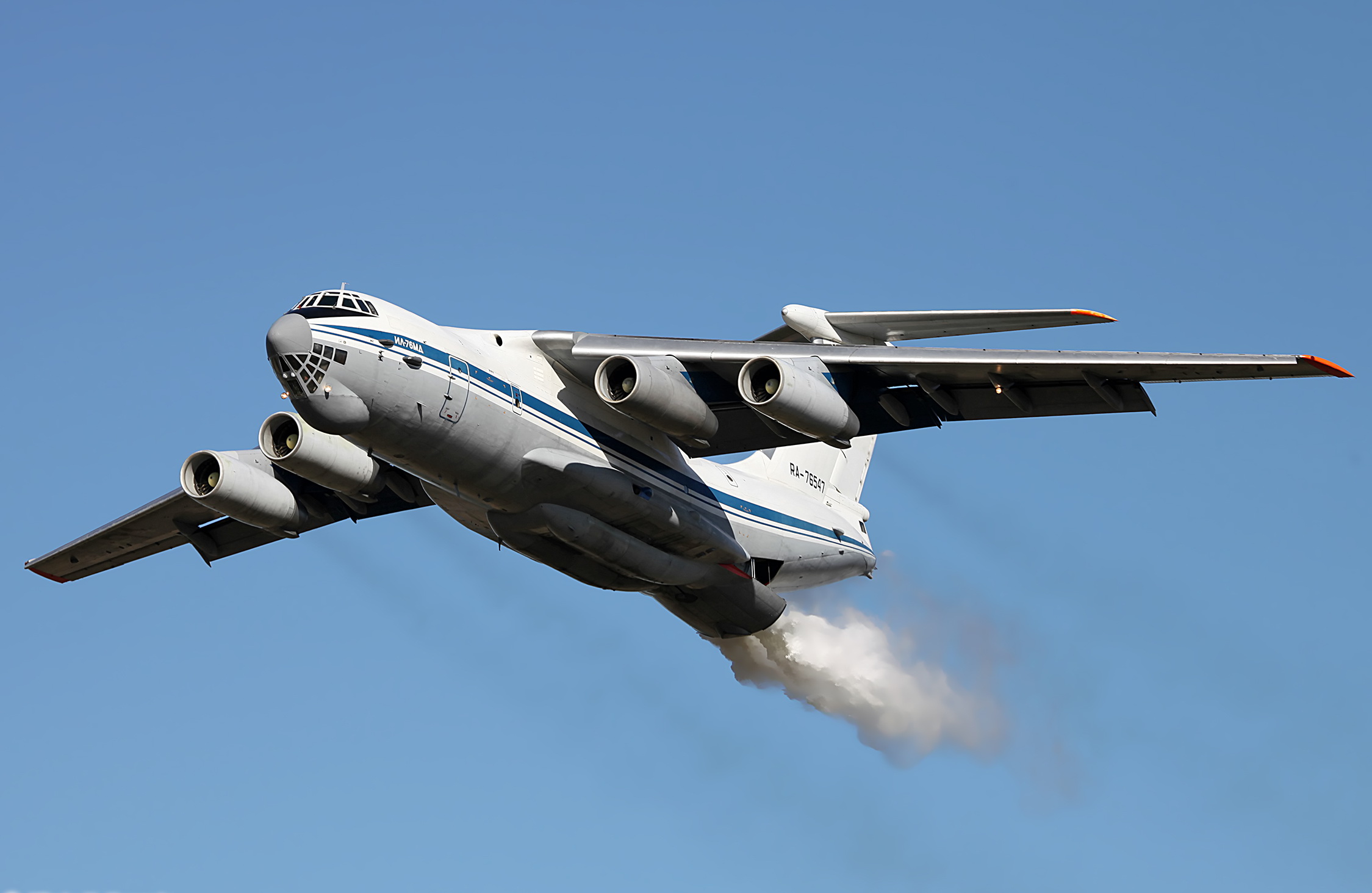
Péter Szijjártó held talks online with Russia's deputy prime minister, Alexander Novak, on European nuclear energy regulations.Continue reading

At around 10 a.m. on Wednesday, a Russian plane landed in Pápa at the Hungarian Defense Forces airfield, government-critical portal Telex reported. According to Flightradar, the plane took off from Moscow and landed in Hungary via Belarus, Poland and Slovakia. The plane is owned by Russia’s Volga-Dnepr Airlines and took more than 3 hours to arrive in Pápa from Moscow.
This article was originally published on our sister-site, Ungarn Heute.
“The Russian plane carrying nuclear fuel to Hungary arrived at the airport in Pápa on Wednesday under special security measures,” the Minister of Foreign Affairs and Trade announced on his Facebook page. In a live video from Brussels after a two-day meeting of NATO foreign ministers, Péter Szijjártó said the Paks nuclear power plant should provide a secure energy supply as it accounts for 49.6 percent of Hungary’s electricity generation, but that nuclear fuel delivered to Hungary from Russia is needed to run the plant.
The case is also interesting because the European Union sanctions package closed all EU airspace to Russian aircraft at the end of February, so Hungary, like the other EU member states, banned aircraft from Russia from its airspace.
The Minister of Foreign Affairs, Péter Szijjártó, explained that the transport was previously done by train through Ukraine, but the war disrupted the usual transport route. Therefore, it was necessary to create an alternative means of transportation, and this is by air, which requires extreme security measures.
We were able to transport the nuclear fuel by air through Belarusian, Polish, and Slovakian airspace to Hungary,”
Szijjártó continued. The first Russian plane carrying such cargo landed at Pápa Airport on Wednesday morning. He also said that all three countries had given permission for air transport, but that communication had been possible only after safe arrival.
“Nuclear energy is exempt from all European Union sanction measures, and we continue to insist on that. After all, our colleagues are negotiating a new sanctions package. For us, the red line is that all activities related to the use of nuclear energy should be exempt from sanctions. That is why we were allowed to transport fuel by air,” said the Foreign Minister.
The arrival of the fuel means that Hungary’s energy supply is secured,”
Szijjártó said, adding that Hungary’s own power generation capacity is of strategic importance and that the Paks nuclear power plant plays an important role in maintaining the reduction of energy prices.
The Ilyushin 76, which has been in production since the 1970s, can lift loads of more than 40 tons and is equipped with four jet engines.
The IL-76 required a special permit, as the Hungarian airspace was closed to Russian aircraft at the beginning of the war in Ukraine, as well as throughout the European Union. In response to a question from Telex, the relevant ministry said, “The general ban on Russian carriers can be exempted in certain cases. The flight in question operated with the knowledge of the European Commission and with the permission and consent of the EU member states affected by the route.”
On March 4, a Russian plane also landed in Hungary in Budapest.
Source: 24.hu
Featured image via Wikimedia Commons